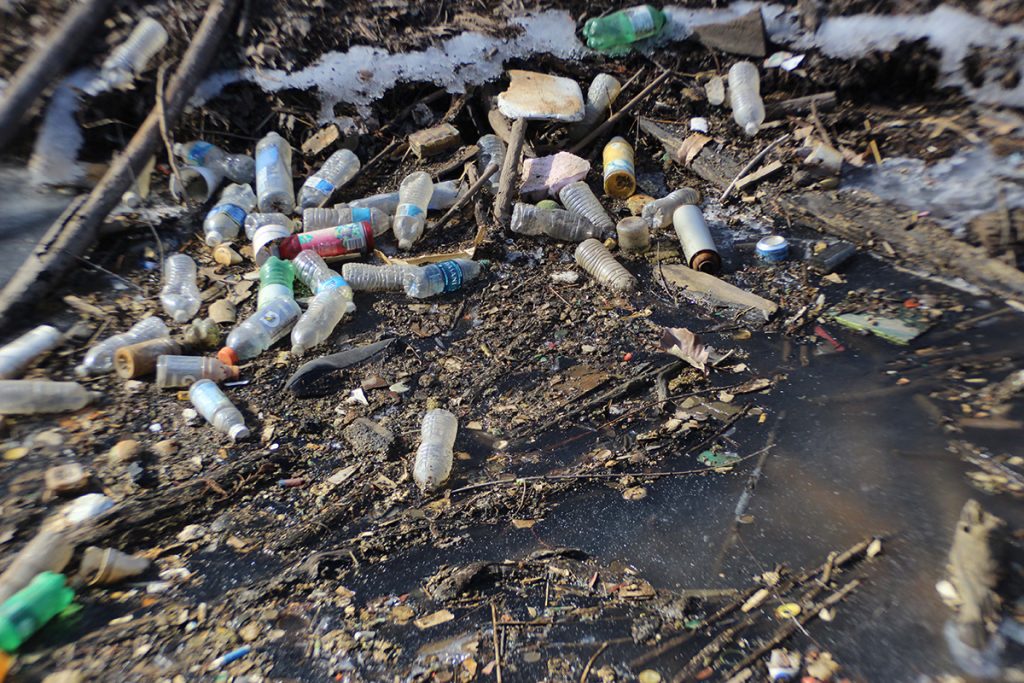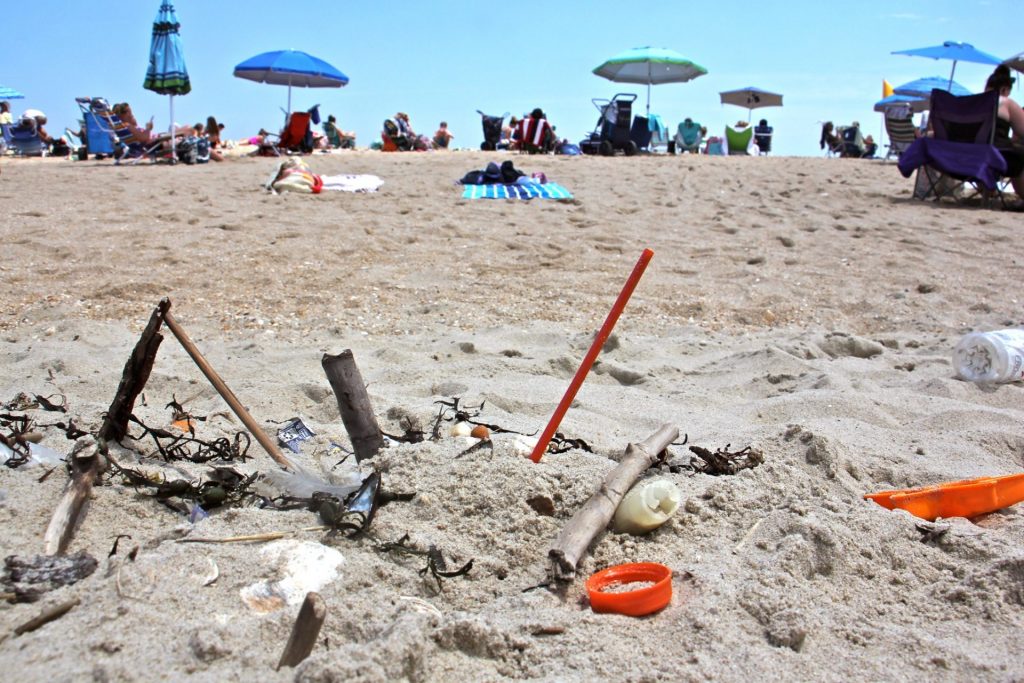America has a Plastic Problem.
We generate over 35 million tons of plastic waste each year, or enough to fill the Dallas Cowboys football stadium every 16 hours. Most of that plastic is sent to landfills or incinerators, both of which are deeply problematic, while the rest of it floats our roads and meanders its way into our waterways.

Philadelphia is No Expectation.
In fact, we’re especially problematic. We consume an estimated 1 billion plastic bags a year while the City’s Water Department removes 44 tons of trash from the Schuylkill and Delaware rivers in a single year. But some forms of plastic are easier to remove than others.
Plastic doesn’t biodegrade like food waste or paper does. It just breaks up into smaller pieces. Those pieces get smaller and small until they are virtually impossible to remove. We call these “microplastics,” or plastics less than 5 millimeters in length. That’s the size of a grain of rice.
Because they are so small, microplastics are then easily consumed by wildlife. As the plastic accumulates in their bellies, they may starve to death. They may suffer but still survive. Either way, they pass those plastics onto the next animal who eats them, who will pass it onto the next one. As it moves through the food chain, that plastic eventually reaches humans.
We don’t know the long term effects of microplastics on our bodies’ health or on the overall health of the food chain. However, we do know that the problem is only getting worse. Half of all plastics ever manufactured were made in the past 15 years and, at its current rate of production, plastic is estimated to outweigh all the fish in the sea by 2050.

In Pennsylvania alone, microplastics were found in more than 50 of most popular waterways.
It’s time for policy change to reduce plastic pollution in the city and state. Sadly, a state law temporarily bans local governments from banning plastic bags. Fortunately, the local governments of Philadelphia, West Chester, and Narberth are suing the state government on grounds that this ban is unconstitutional.
While a step in the right direction, a plastic bag ban is not sufficient to ensure the well-being of human and non-human life in Pennsylvania.
In their report “Microplastics in Pennsylvania,” the environmental advocacy organization PennEnvironment calls for the policies to phase out single-use plastics, establish responsibility for waste producers to manage post-consumer waste, prevent overstocking in the clothing industry, and developing green infrastructure to filter microplastics from our sewage.